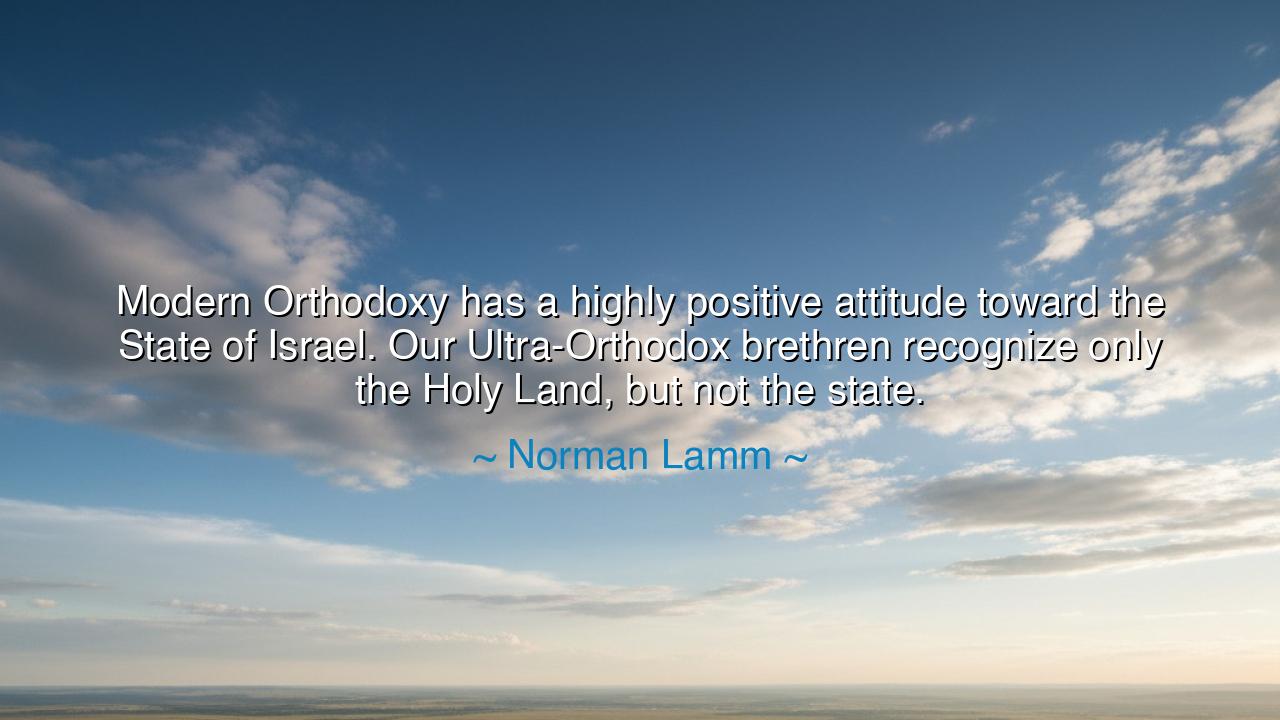
Modern Orthodoxy has a highly positive attitude toward the State
Modern Orthodoxy has a highly positive attitude toward the State of Israel. Our Ultra-Orthodox brethren recognize only the Holy Land, but not the state.






Host: The room was filled with the soft light of the evening, the world outside slowly fading into dusk. Jeeny sat at the table, her hands wrapped around a cup of tea, her gaze distant, as if reflecting on something deeper. Jack stood by the window, his fingers lightly tapping the edge of the sill, his thoughts clearly elsewhere. Finally, the quiet was broken by Jack, his voice thoughtful, carrying a weight of reflection.
Jack: (his voice calm, but reflective) "Modern Orthodoxy has a highly positive attitude toward the State of Israel. Our Ultra-Orthodox brethren recognize only the Holy Land, but not the state."
Jeeny: (looking up from her tea, her voice gentle, but filled with curiosity) "It’s fascinating, isn’t it? The contrast between Modern Orthodoxy and Ultra-Orthodoxy when it comes to Israel. One group sees the state as a positive development, a key part of Jewish identity today, while the other holds to a more spiritual view, seeing the land but not the political state as significant."
Jack: (nodding slowly, his tone reflective) "Yes, it’s like two different understandings of what it means to be connected to Israel. Modern Orthodoxy views the establishment of the state as a fulfillment of a historical and religious dream — a physical homeland for the Jewish people. But for the Ultra-Orthodox, it’s more about the sacredness of the land, not the secular state that governs it. There’s a tension between the political reality and the religious ideal."
Jeeny: (pausing, her voice calm, almost philosophical) "It’s the difference between seeing Israel as a part of religious destiny versus seeing it as a political entity. For the Ultra-Orthodox, the belief in the coming of the Messiah is central, and they don’t believe that the establishment of the state of Israel is part of that divine plan. It’s a more cautious, spiritual view. On the other hand, Modern Orthodoxy embraces the state, seeing it as part of the ongoing fulfillment of God’s will in the modern world."
Jack: (his voice thoughtful) "It’s an interesting tension, because both views have a deep connection to Jewish identity and the land of Israel, just from different perspectives. Modern Orthodoxy sees the state as a natural part of the Jewish people’s return to their homeland, a step forward. Ultra-Orthodoxy, however, is focused on the spiritual purity of the land and the coming redemption, which they feel hasn’t been fully realized yet."
Jeeny: (nodding slowly, her voice gentle, almost sympathetic) "I think it also speaks to a broader theme within Jewish thought — the relationship between faith, politics, and the fulfillment of prophecy. For one group, Israel as a political entity is a sign of progress. For the other, it’s a reminder that the sacred cannot be forced or rushed. There’s something deeply rooted in that spiritual caution, a desire to maintain the purity of belief without getting entangled in the messiness of politics."
Jack: (his voice quieter, almost in awe of the complexity) "It’s a powerful divide, one that shows how diverse the Jewish experience is. The balance between religious belief and political reality is never simple, especially when it comes to something as complex and sacred as Israel. It’s about more than just the land; it’s about what that land represents."
Jeeny: (smiling softly, her voice reassuring) "Exactly. It’s about the sacredness of the land and how people interpret that in the context of their faith, their politics, and their history. There’s no one right way to approach it, just different paths to understanding what Israel means to the Jewish people."
Host: The room seemed to settle into a quiet understanding, the weight of the conversation lingering in the air. Jack and Jeeny had uncovered the complexity of the differing views on Israel, recognizing that both Modern Orthodoxy and Ultra-Orthodoxy held deep and valid perspectives — each shaped by its own interpretation of faith, history, and identity. The divide wasn’t just political; it was rooted in centuries of religious belief and spiritual vision, each group seeking to navigate the evolving relationship between the Jewish people and their homeland.






AAdministratorAdministrator
Welcome, honored guests. Please leave a comment, we will respond soon